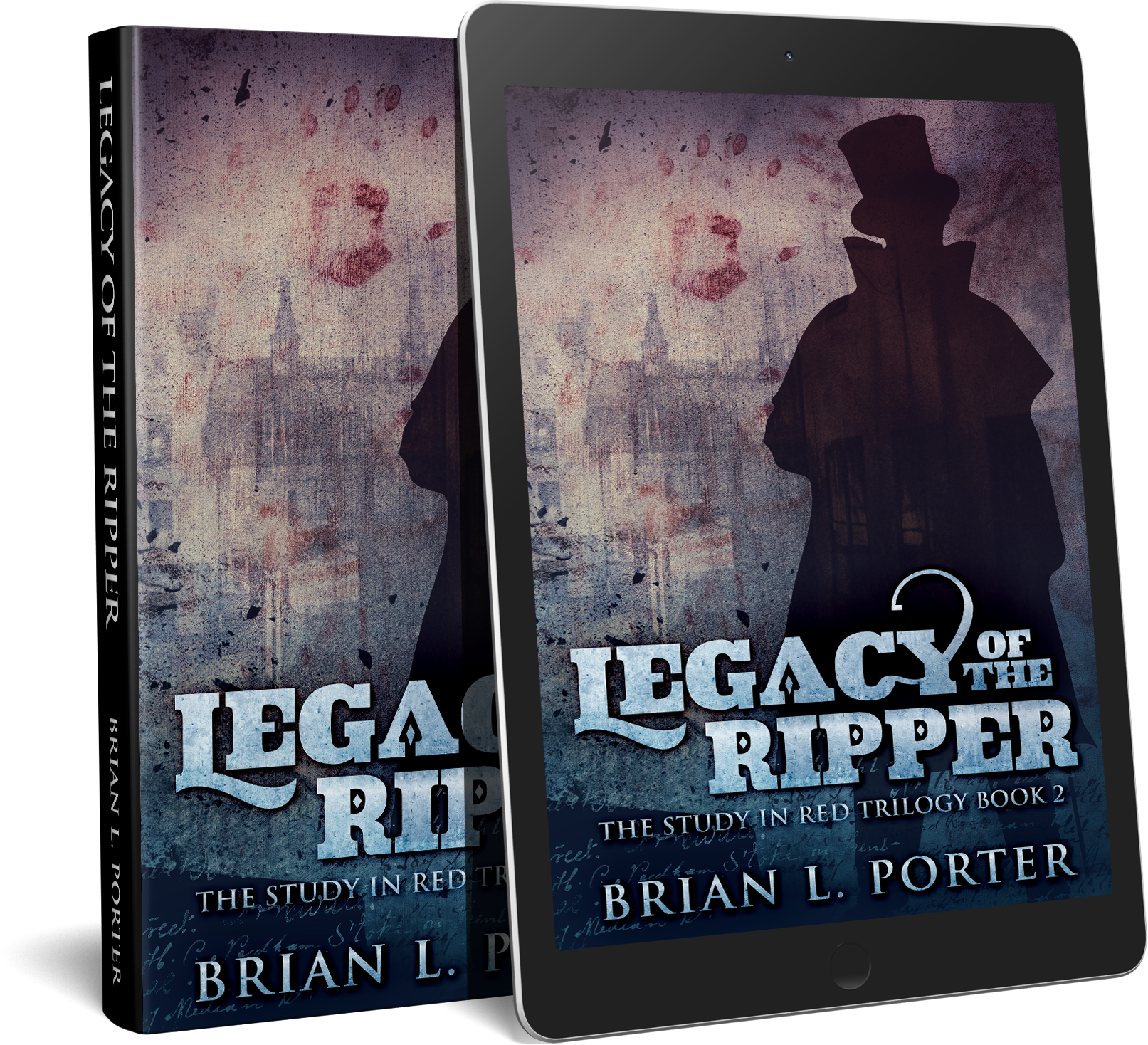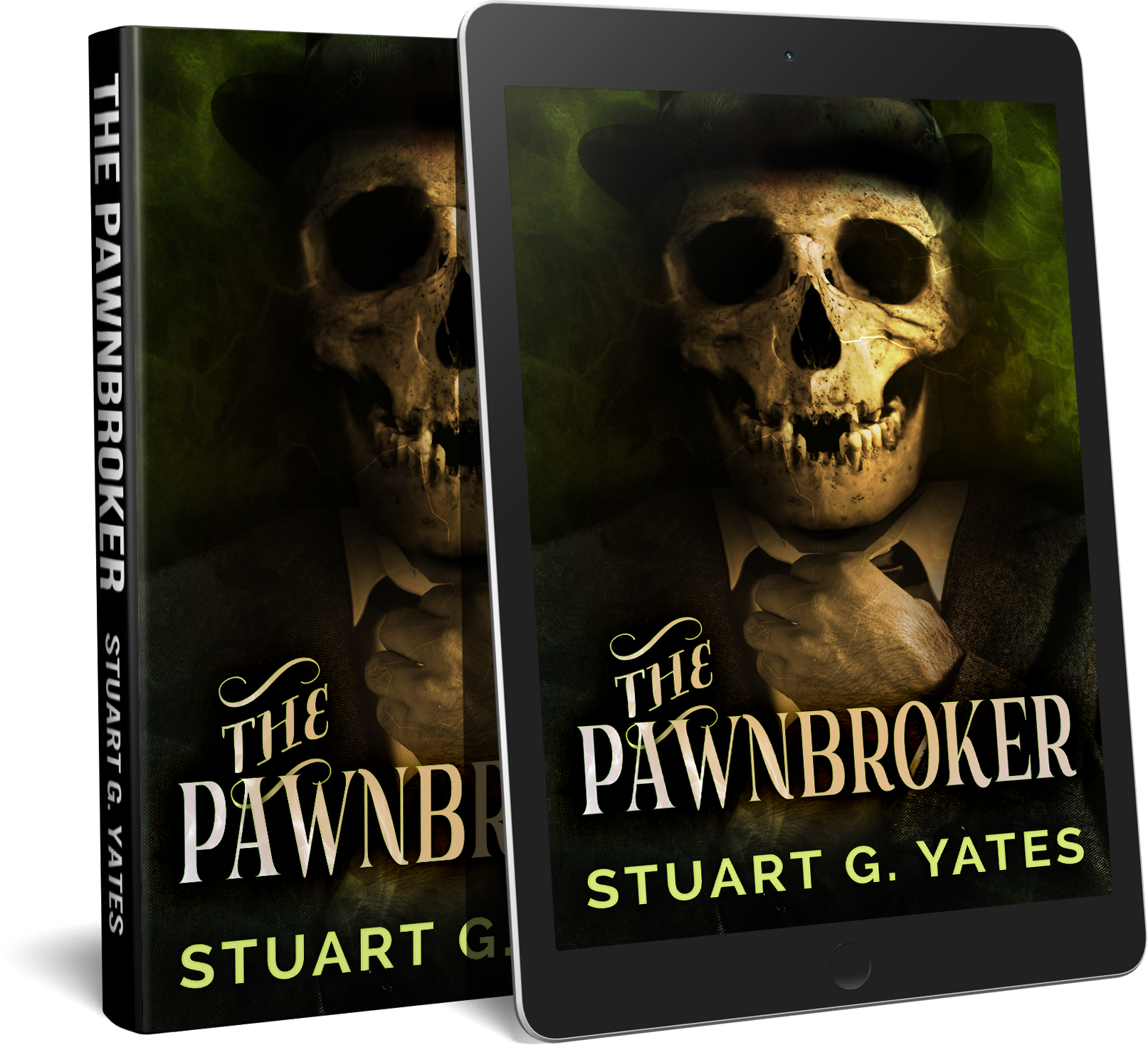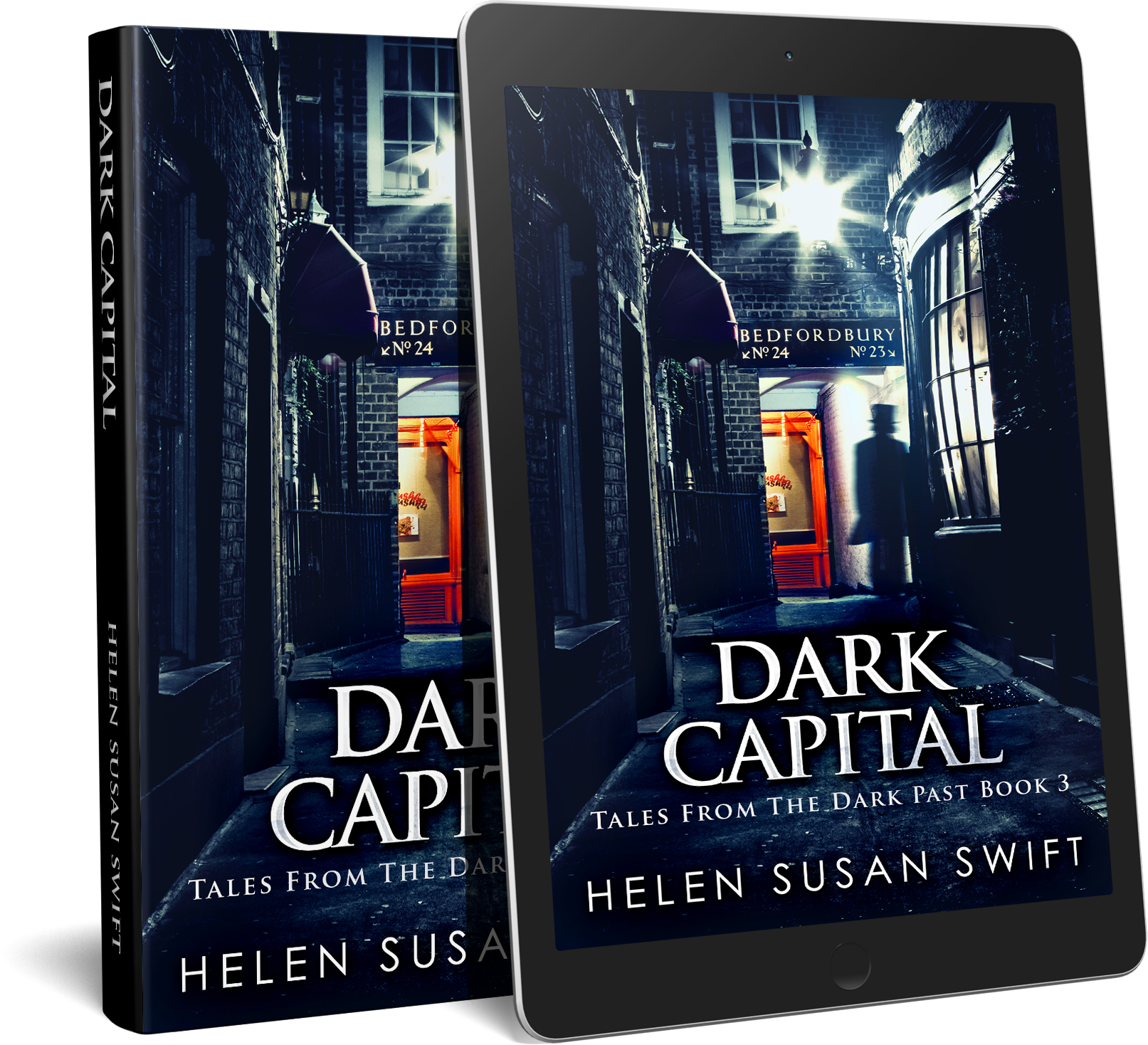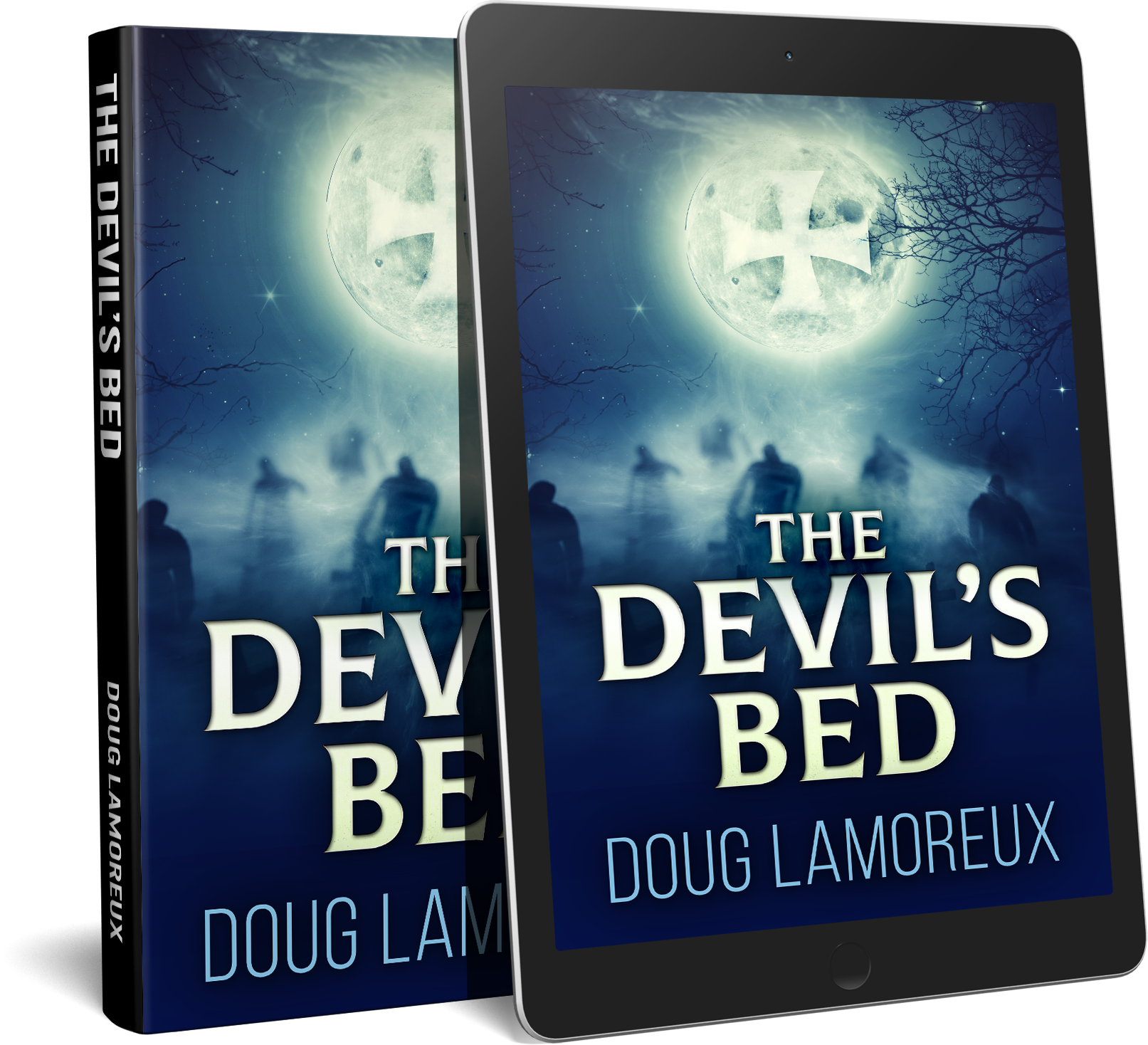The best historical horror books from Next Chapter [March 2023]
The horror book genre has a rich history, with roots dating back to the 18th and 19th centuries. The genre began to gain popularity in the mid-1800s with the emergence of Gothic literature. Gothic literature focused on the supernatural and the eerie, with authors such as Edgar Allan Poe and Mary Shelley becoming well-known for their horror stories.
In the late 19th and early 20th centuries, horror literature evolved into a more psychological form. Authors such as Bram Stoker, Robert Louis Stevenson, and H.P. Lovecraft explored themes of madness, the human psyche, and the unknown. Horror books of this era often featured themes of madness and the supernatural, and were often considered taboo.
In the modern era, horror literature has continued to evolve, with authors such as Stephen King and Clive Barker becoming household names. Today's horror books often explore more complex themes such as race, gender, and politics, while still incorporating classic horror elements such as ghosts, monsters, and haunted houses. The horror genre remains popular to this day, captivating readers with its ability to both terrify and fascinate.
On this page, you’ll find four of our best historical horror books, all available from major book retailers. No matter the setting or time period, we believe you’ll like one of the books below - and if you do, please take a moment to leave the author a review :) Don’t agree with our choices? Leave a comment below and let us know what books are your favorites in the historical horror fiction genre
Books featured on this page
Legacy Of The Ripper (The Study In Red Trilogy Book 2) by Brian L. Porter
Dark Capital (Tales From The Dark Past Book 3) by Helen Susan Swift
Legacy Of The Ripper (The Study In Red Trilogy Book 2) by Brian L. Porter
Book excerpt
Allow me to now trek back in time once more, back to the dark and murky, crime-infested streets of the East End of London, in the year 1888. Such a time slip is necessary in order for me to illustrate the odd connections that began to come together in the beautiful seaside town of Brighton in our own time. Of course, as events began to unfold no-one made any connection between the events in London so long ago and what was taking place in Brighton. At least, not in the beginning.
In the early hours of the morning of 31st August 1888, the body of forty-three-year-old prostitute Mary Ann Nichols, known locally as ‘Polly’, was discovered by two men, Charles Cross and Robert Paul in a doorway on Buck’s Row, Whitechapel. Three police constables were on the scene within five minutes, and one of them, Police Constable Neil, was able to ascertain immediately, with the aid of the light from his lantern, that the woman’s throat had been cut. Her skirt had been pulled up, though it wasn’t evident at that time that the victim had been subjected to a series of mutilations. The police surgeon, a Doctor Rees Llewellyn, was summoned. He pronounced the victim dead and ordered the body to be taken to the mortuary shed at Old Montague Street Workhouse Infirmary. It was during the stripping of the body at the mortuary that the mutilations to Polly Nichols’s body were discovered and Doctor Llewellyn was subsequently summoned to carry out a further examination of the remains.
Though not identified immediately her identity was later confirmed by Mary Ann Monk from the Lambeth Workhouse, where Mary Ann (Polly) had spent time in the recent past. Mary Ann Nicholls had been married to William Nichols, a printer, and had borne him five children. Following frequent and often violent quarrels, mostly caused by Mary’s propensity for drink the couple separated and, as was so often the case amongst the poor of Victorian London, she took to prostitution in an attempt to keep body and soul together. It was an old story and one repeated all too often amongst the decay and squalor that the poorest inhabitants were forced to endure on a daily basis.
There were no welfare benefits, no handouts and no pity to be spared for those who made up the sad underclass without whom the vast engine of the British Empire would in all probability have ground to a halt. These were the souls whose sweat and hard labour fuelled the vast factories that had sprung up during the industrial revolution, who worked long and hard hours on the docks, in the markets and on the streets of London in order to eke out the barest of livings. The hours were long and the work mostly soul destroying and backbreaking in its physical intensity.
Their homes were for the most part dark and dirty hovels, with often more than one family sharing not a whole house, but a pitiful room, perhaps without furniture, beds, or decent food. Windows were often bare of glass and were stuffed with old newspapers or sacking, anything to keep out the cold of night. Degradation and squalor were the order of the day and nowhere was perhaps as severely affected as the Whitechapel district, where crime, disease and apathy of soul became bywords for those who eventually sought to attempt to improve the lot of those who were forced to endure the privations of life on the fringes of so-called civilised society.
Such was the way of life endured by Polly Nichols and those like her, the poor ‘unfortunates’ who plied their pitiful trade selling their bodies for a few pence at a time in a pitiful attempt to raise enough money to find a bed for the night in one of the many ‘doss’ houses that sprang up around the East end to cater for those with no home to call their own. Of course, the handmaiden of the prostitutes of Whitechapel was so often the gin that flowed in the many ale houses and pubs that lined the district’s streets, and the temptation was always there to spend whatever meagre earnings they’d obtained in attaining the oblivion of drunkenness in preference to finding that bed for the night. It was certainly the case for Polly Nichols. A woman by the name of Ellen Holland had been the last person to see her alive, reporting her as having been ‘drunk and staggering’ when she saw her on the corner of Osborn Street and Whitechapel High Street at around two thirty a.m. Perhaps we may hope that her state of drunkenness protected her from the full horrors of what was about to befall her.
The Pawnbroker by Stuart G. Yates
Book excerpt
Jamie sat with his back to the door, his eyes red raw, stinging from prolonged crying. Without his friend beside him, he felt mortally afraid and more vulnerable and alone than ever before in his life. If only Tim had listened to him, they could both be at home by now, tucking into their tea, laughing together, looking forward to another bike ride the following day. But Tim never listened to him and the consequence of this was that everything that could go wrong had gone wrong. Now, Tim was lost and Jamie was all by himself in this wretched room. As a new bout of sobs welled up from the back of his throat, he couldn’t imagine a worse situation to be in.
Slowly, the realisation of the utter uselessness of shedding tears brought a new, simmering anger to replace his fear. Anger at his own weakness more than anything else. He should have insisted that he and Tim went home and, if Tim’s determination to go on continued, then he, Jamie the wimp, should have simply picked up his bike and pedalled home. He might have lost his only friend, but he wouldn’t be experiencing the awfulness he now faced. With a sudden resolution, he wiped his eyes with the back of his sleeve and climbed to his feet.
“No use sitting here,” he said to himself, his voice sounding tinny in that cold, sparse room, He padded over to the door leading led back into the main hallway. For a moment, he was seized by an irrational dread of finding this door locked as well. Biting down on his bottom lip, breath held, he eased the handle down and released a long sigh of relief as it swung open.
The hall appeared as before, except for the light. Already, evening was coming on, the stark, whiteness of the walls changing to a more subtle, softer grey. They appeared to undulate, moving in and out of focus, and, a little light-headed, he fell back against the wall, pressing thumb and finger into his eyes. When at last he looked again, the walls were solid, albeit a deeper shade of grey. Swallowing down his panic, Jamie calculated he had two choices before the darkness trapped him here – to leave his friend in the house, cycle back home and tell Mum, who would almost certainly call the police, or to find Tim himself.
Both ideas filled him with dread, but it didn’t take him long to decide that leaving Tim all alone in this great, creepy edifice wasn’t the right thing to do. Taking a deep breath, he shuffled towards the great stairway, and, reaching the bottom step, looked up.
They were steep and tall, curving slightly to the right near the top before they met the landing, which disappeared into the deepening gloom. He swallowed hard. He’d always been afraid of upstairs, ever since he could remember; dark, foreboding, full of the terrors of the night. His own house was a Victorian terrace, full of creaks and groans, but these stairs led to something infinitely scarier. The unknown.
Dark Capital (Tales From The Dark Past Book 3) by Helen Susan Swift
Book excerpt
There is something eternally fascinating about a fire. I don’t know what it is, although I suspect it is a memory from our distant ancestors when we huddled in caves with only flames keeping us safe from nighttime predators. My compulsion to stare into the fire certainly increased tenfold after I moved into the house off the West Bow. Evening after evening, I fought the shadows of my mind by crouching close to the heat and staring into the orange flames, as if I were a part of the phenomenon that Ruth had created from sticks, paper and coal.
Each night the fire drew me closer, so I could imagine myself standing atop the lumps of black coal as the flames licked around me, with the heat building and people gathered around to watch me gasp and writhe and scream at the unbearable pain. Each night the feeling grew more intense as I burned within the flames, with the stink and crackle of burning hair first, then the searing agony as my skin scorched and my eyeballs melted. I was surrounded by fire, twisting, pleading for mercy that never came, slowly burning to the pitiless interest of the crowd.
I jerked back, aware that I had nearly fallen into the fireplace. That dream, that image was terrifyingly real. Stepping away from the fire, I poured myself a glass of claret, drank it back and stilled my vibrating nerves.
“Doctor Elliot,” I told myself sternly, “you must keep control of your imagination. That’s all it is, imagination.”
Half smiling, I had another drink, lifted a medical treatise to divert my mind on to more practical matters and sat down again, taking the entirely sensible precaution of pulling my chair back from the fire.
Claret seemed to ease my mind, removing my thoughts from these long lapses into the unknown realms, like waking nightmares. Daymares, perhaps, for want of a better name, for it was not yet fully dark outside and I used the fire partly to keep the inherent chill of the house at bay. Whatever I did, the house always seemed cold and clammy, with the occasional, unexplained sound, as if somebody were breathing. Once I thought it was the house itself breathing, but that was when I was newly awake and stupid from sleep.
I wondered anew what that gaunt fellow had meant when he warned me away from this house, and why so many local people recoiled from even entering. Was there some truth to the stories? Some remnant of an old event? A murder perhaps?
The Devil's Bed by Doug Lamoreux
Book excerpt
Brandy would be pissed. Ray ogled the myriad designs covering the walls of the little shop fully aware that, if she knew he was there, man, Brandy would be pissed.
'There' was Art dans le Movement a tiny, obvious tattoo parlor (garish lighting, grafittigraffiti paint job) with no logical reason to exist in the quaint French village of Paradis. So, when he left Chambon, the immense village park, where he'd killed off a ham and pastrami on rye, a bag of chips, and an hour, and after passing a cobbler's shoppe, a cheese shoppe and a bakery, the last thing on earth Ray expected to find was a tattoo parlor. Maybe it was fate.
The place was decorated with the expected wall to wall tats and, unexpectedly, an amazing collection of bleached animal skulls. Rats, cats, dogs, birds. The artist had personality.
“That’s bad!”
Ray, a monstrous 'biker' of a man, turned and again saw what he'd expected, a heavily tattooed and pierced shop artist standing in a back room doorway. What was unexpected was the British accent - thick as cut-comb honey.
“The tats! Bloody hell, they’re baaaaad! I like, mate.”
“You’re English?”
“You mean British? Nah.” He saw Ray's confusion. “Believe it or not, mate, I’m French, actually.”
Ray bit his tongue. Six weeks of Anger Management and still his first thought was, 'Is this guy fucking with me?' If he was French he was keeping it a secret from his voice. It thought he was British.
The artist laughed nasally then raised his hands, signaling for peace. “Honest to God, I'm not mocking you. I was born here, three blocks away. But I was raised in the UK. A political brat. My father was in the foreign serviceForeign Service, diplomatic messenger, ambassador to Her Majesty, a member of the EP. Misspent my youth in Nottingham and the rest in London. Came home last year to open shop.” He stepped forward to shake. “Jerome Rousseau,” he said. “Despite this bloody accent... I’m pure Frog.”
He laughed again and this time Ray joined in.
“You've got a bit of an accent yourself. Americain, n'est-ce pas?, as the locals would ask.”
Ray nodded. “Red, white and blue. Ray Kramer. By Wyoming, out of Illinois.”
“Wyoming? A cowboy?”
“Yeah, with a steel horse. Hog rider.”
“Fucking-A, mate. I like bikes. I also like tats, if you don't mind my getting back to business.”
“I don't mind.” Ray examined his own left arm without enthusiasm. His muscular bicep sported an inky hooded executioner, ax in hand, before a shadowed castle with a bat flitting past a faded yellow moon. “I’m getting tired of them.”
There you go: four of the best historical horror books from Next Chapter, as of 03/2023. We hope you enjoy the stories - and if you do, please leave a comment below, or a review in Goodreads or your favorite store. We’d really appreciate it!














Praesent id libero id metus varius consectetur ac eget diam. Nulla felis nunc, consequat laoreet lacus id.